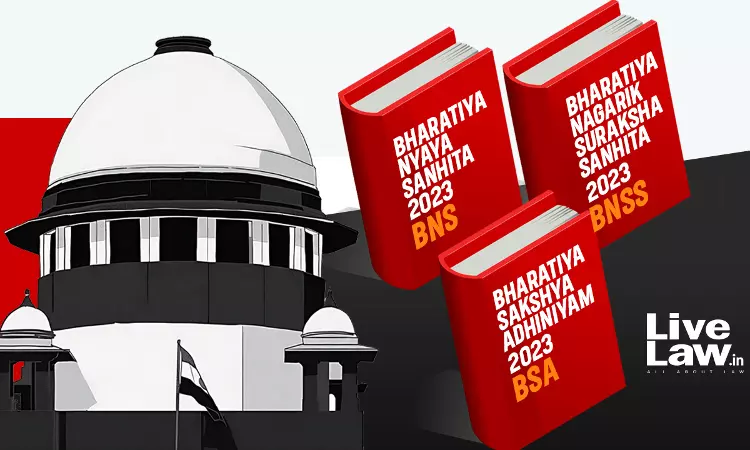PIL In Supreme Court Seeks Expert Committee To Assess New Criminal Laws, Says They Create Confusion & Increase Burden Of Lawyers
Gyanvi Khanna
28 Jun 2024 9:45 AM IST

The petitioners argued that the new laws do not have much substantive changes from the previous laws except changes in names and sequence of sections.
Next Story


